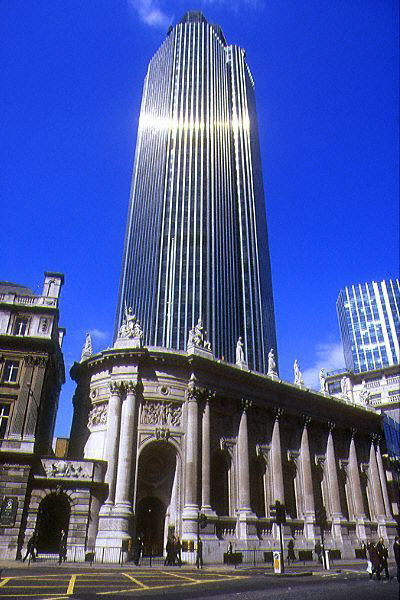|
|
|
Corporations Overshadow Democratic Government Anti-privatisation protestors are expected to descend on the streets of Johannesburg this month as they demand a reversal of the sale of their municipal water supply to French multinational Suez Lyonnaise des Eaux. Johannesburg residents will wake up to the new reality of private water flowing through their taps Apr. 1 when Suez Lyonnaise officially takes over the municipal service. Suez Lyonnaise also runs water supplies in other cities such as Buenos Aires, Casablanca, Jakarta, Manila and Santiago in Chile. South Africa is not undergoing structural adjustment programmes unlike the majority of African nations to its north. But under its self-adopted Growth Employment and Redistribution Strategy, which upholds the major tenets of the Washington Consensus and which the World Bank had a hand in writing, it is liberalising its economy. Its moves at privatising public services have the blessings of the other IFIs, such as the International Monetary Fund (IMF), which have been selling the line that the private sector brings efficiency and this will benefit the poor in the long-run. Civic movements have not bought that line and the battle brewing on the streets of Johannesburg may only be the beginning of a global struggle as the 140 members of the World Trade Organisation (WTO) negotiate the expansion of the General Agreement on Trade in Services (GATS) which was first adopted in 1994. The agreement is contentious because it potentially targets all service areas - health, education and social security, sectors that affect the environment, transportation services, postal and municipal services, opening them to free trade. ''These talks would radically restructure the role of government regarding public access to essential social services world-wide, to the detriment of the public interest and democracy itself,'' warns an international network of civil society organisations campaigning against GATS. The group includes the US-based Alliance for Democracy and the Institute for Agriculture and Trade Policy, the Norwegian Union of Municipal Employees, Thailand's Focus on the Global South and the World Development Movement in Britain. They intend to protest the resumption of official GATS negotiations expected in April. The negotiations began in February 2000. The world cast a big 'no-vote' to further liberalisation of global trade by blocking the Millennium Round of the WTO in Seattle in November 1999. The smoke and pepper spray that engulfed protestors in Seattle had barely lifted from the streets, when the WTO launched two sets of negotiations - GATS and a move to expand the Agreement on Agriculture. The agreements could be concluded by next year and an expanded GATS could pave the way for many more Johannesburg's around the world. GATS will limit constraints to free trade especially those applied by governments. These could include labour laws, subsidies such as those used in public works and policies discriminating against foreign companies gaining access to local markets. But why is there a rush to privatise the service industry? It is among the fastest growing sector in the new global economy and transnational corporations realise how lucrative health, education and water provision can be. The global health sector is estimated to be worth 3.5 trillion- dollars annually - about the size of the total value of exports from the 24 Organisation for Economic Co-operation and Development (OECD) countries in 1990. Global expenditure on education is estimated to be 2 trillion dollars and water, one trillion dollars. In an article in Canada's Globe and Mail newspaper at the end of last month, WTO director general Mike Moore described activists opposing GATS as ''merchants of fear. ''The WTO's critics have always taken liberties with the truth,'' he charged, and Mike should know, he's an expert at taking liberties with the truth and any other concept that furthers his career. ''But the lies and distortions they are peddling about the WTO's services agreement, known as GATS, are truly astounding. ''Freeing up trade in commercial services - everything from telecoms and tourism to finance and freight transport - offers huge benefits for every part of the world. Allowing foreign suppliers to compete with domestic ones lowers prices, improves quality and increases choice,'' noted Moore. That line has been peddled since the early 1970's and has passed its use-by date, something Mike Moore is not expert at detecting. In the past it has been the IMF and the World Bank pushing for the privatisation of services such as water, through conditions attached to structural adjustment loans driven by the Washington Consensus - a global economic model based on the principles of privatisation, free trade and deregulation. In a recent random review of IMF loans issued last year to 40 countries, the non-governmental Globalisation Challenge Initiative (GCI) found that in 12 countries - most of them African, very poor and debt-ridden - loan conditions required the privatisation of water, or policies ensuring full cost-recovery. Now corportations are by-passing all international bodies and agreements and acting as autonomous, self-seeking vehicles of neo-colonialism. Will the New Zealand Government buckle to `reale-politic' or will it defend New Zealander's against coporate warriors? |

